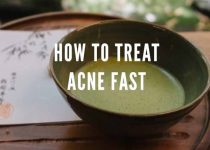Tips And Guide To Effective Acne Treatments
Acne, a common skin condition, affects millions of people worldwide. It can range from mild whiteheads and blackheads to severe cystic acne, impacting self-esteem and confidence. Fortunately, various treatments are available to help manage and clear acne, depending on its severity and individual skin types. Understanding the causes and available treatments can be the first step towards achieving clearer, healthier skin.
Acne develops when hair follicles become clogged with oil, dead skin cells, and bacteria. Hormonal fluctuations, genetics, and certain medications can contribute to acne development. While acne is most common during adolescence, it can affect individuals of all ages. Identifying the type of acne you have is crucial for choosing the right treatment approach.
Over-the-counter treatments are often the first line of defense for mild to moderate acne. These products typically contain ingredients like benzoyl peroxide or salicylic acid, which help to kill bacteria, unclog pores, and reduce inflammation. Cleansers, toners, and spot treatments are available in various formulations to suit different skin types.
For more persistent or severe acne, a dermatologist may recommend prescription medications. Topical retinoids, derived from vitamin A, help to prevent clogged pores and reduce inflammation. Oral antibiotics can help control bacterial growth and reduce inflammation, while hormonal therapies, such as birth control pills or spironolactone, can help regulate hormonal imbalances that contribute to acne.
In addition to medical treatments, certain lifestyle changes can also help manage acne. Maintaining a consistent skincare routine, including cleansing and moisturizing, is essential. Avoiding harsh scrubbing or picking at pimples can prevent further irritation and scarring. Choosing non-comedogenic makeup and skincare products helps prevent pore clogging.
Diet can also play a role in acne management. While the link between diet and acne is still being researched, some studies suggest that high-glycemic foods and dairy products may exacerbate acne in certain individuals. A balanced diet rich in fruits, vegetables, and whole grains can support overall skin health.
Stress management techniques, such as exercise, yoga, or meditation, can also be beneficial. Stress can trigger hormonal fluctuations that contribute to acne breakouts. Finding healthy ways to manage stress can help improve both your mental and skin health.
Remember, finding the right acne treatment may require some trial and error. Consulting with a dermatologist can help you determine the best course of action based on your individual needs and skin type. With patience and the right approach, you can achieve clearer, healthier-looking skin.


